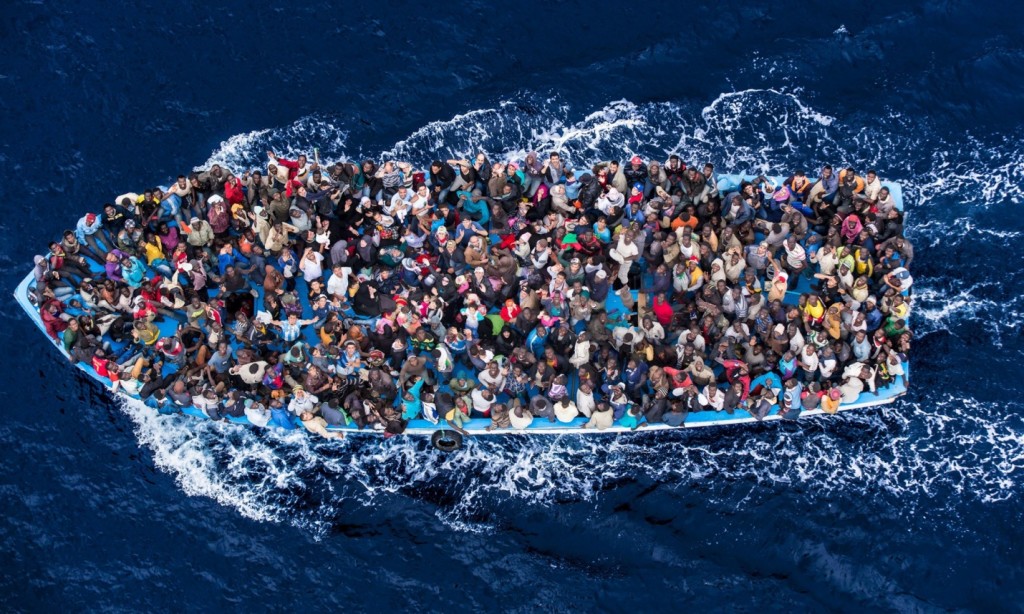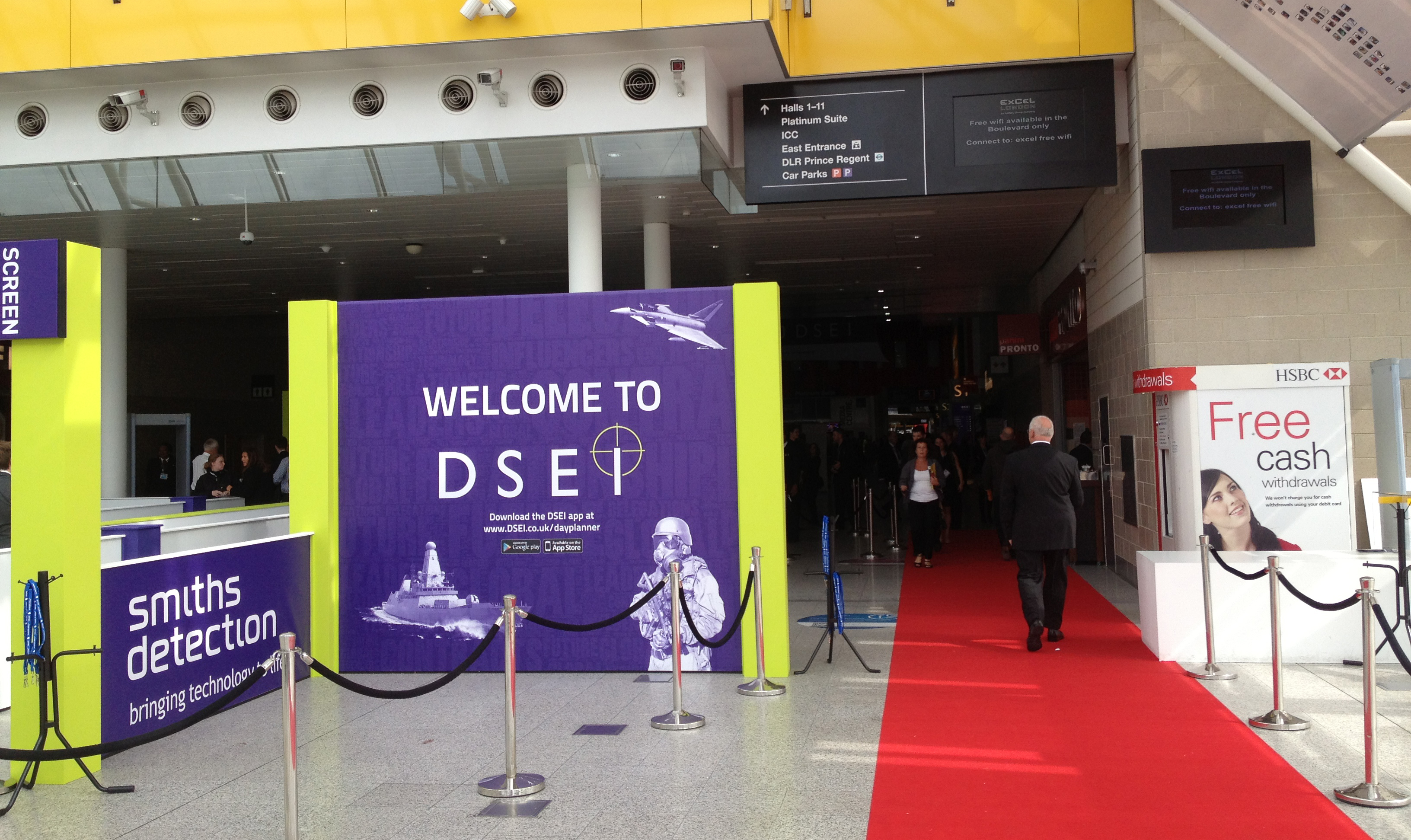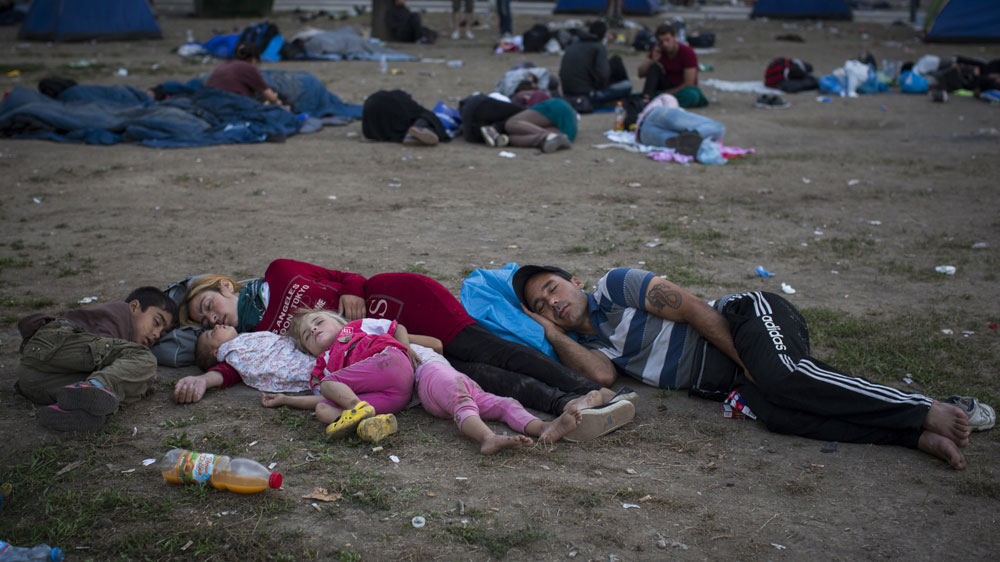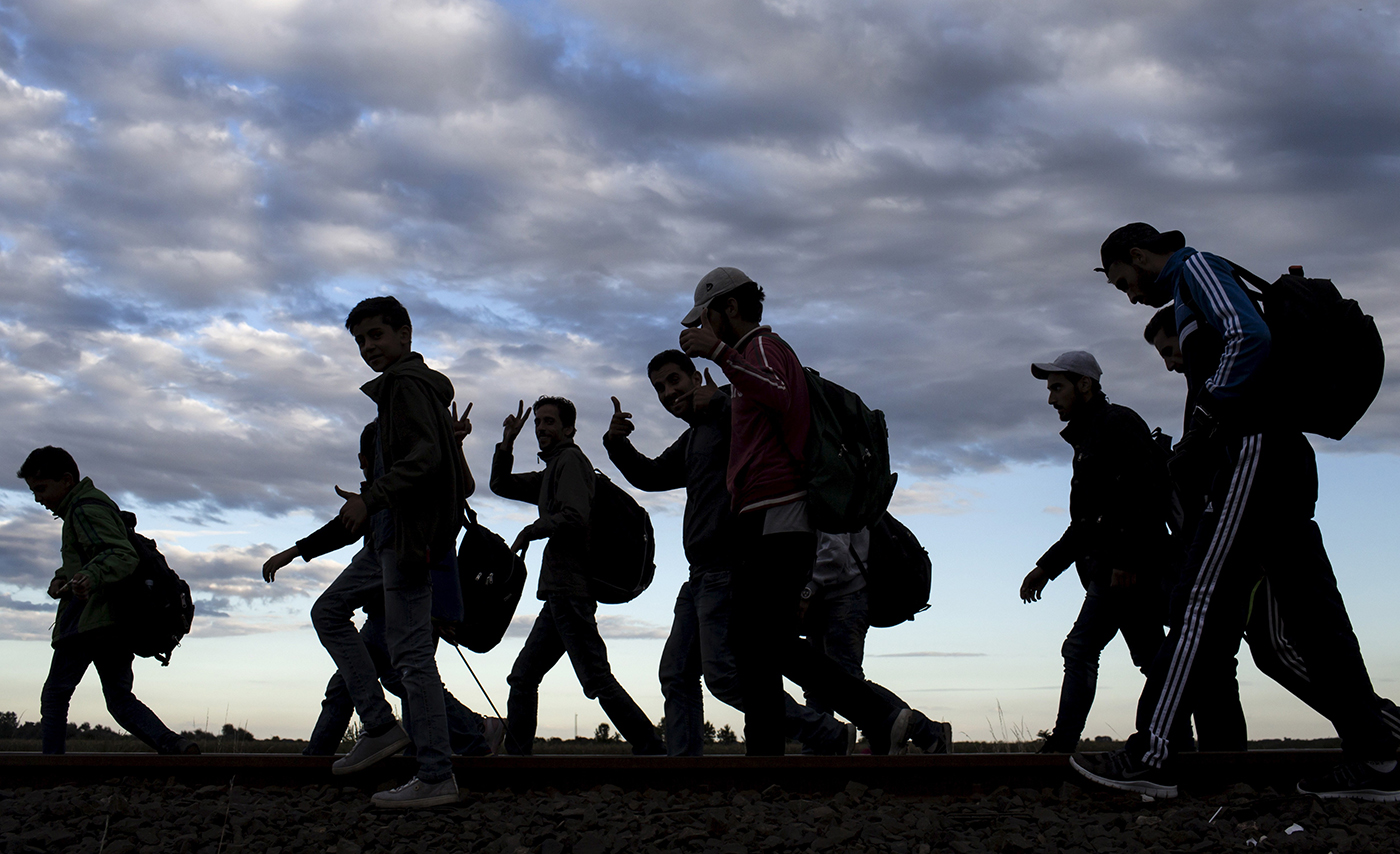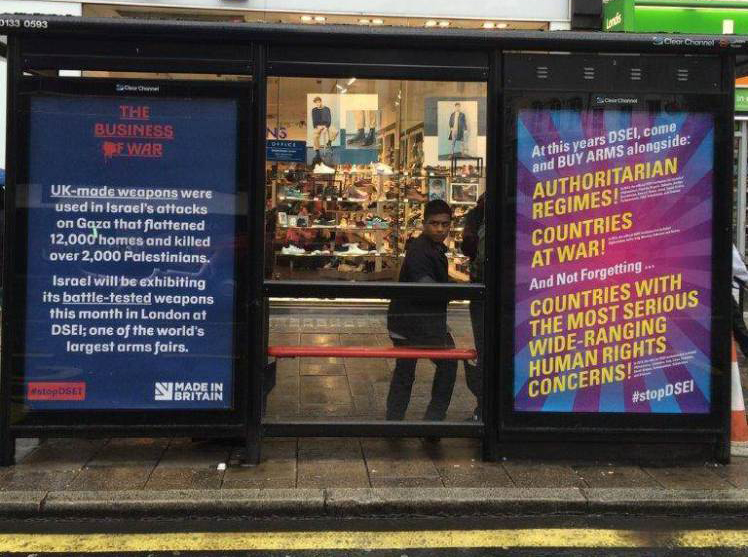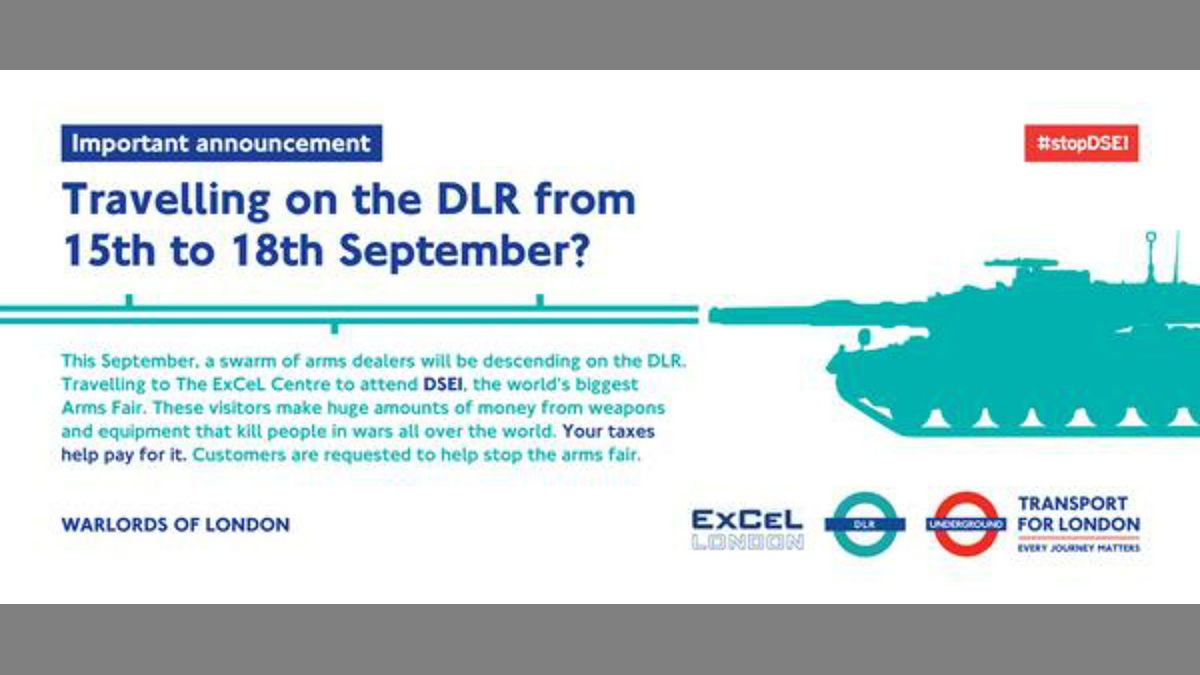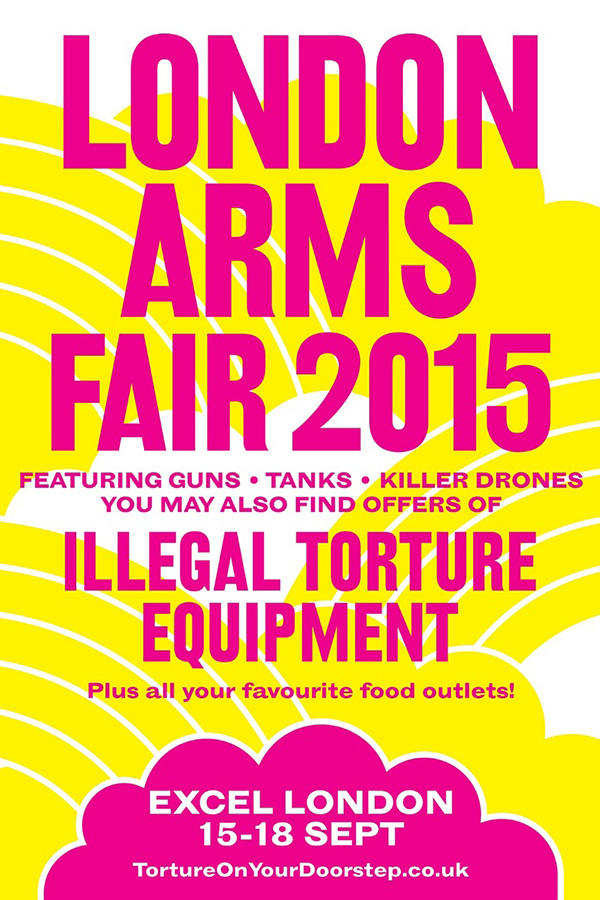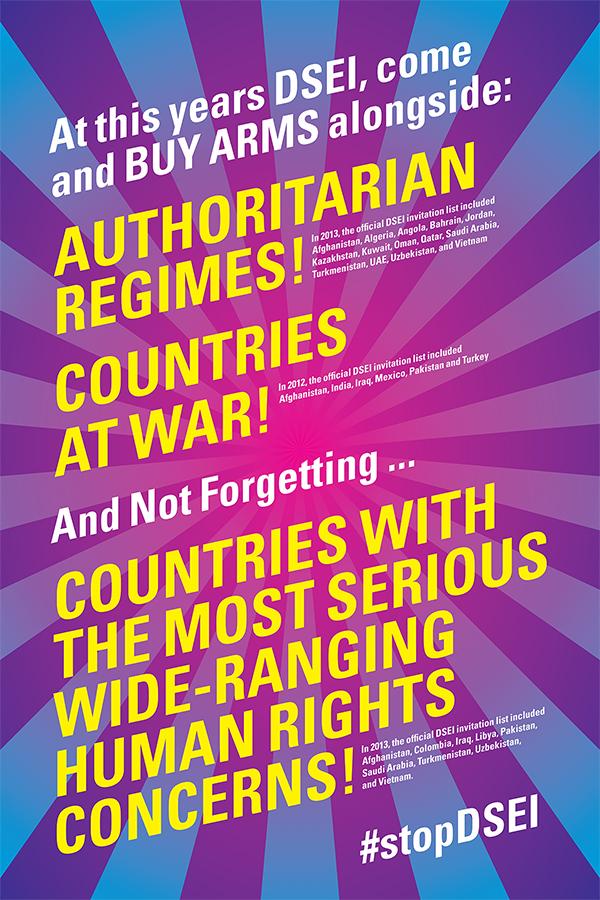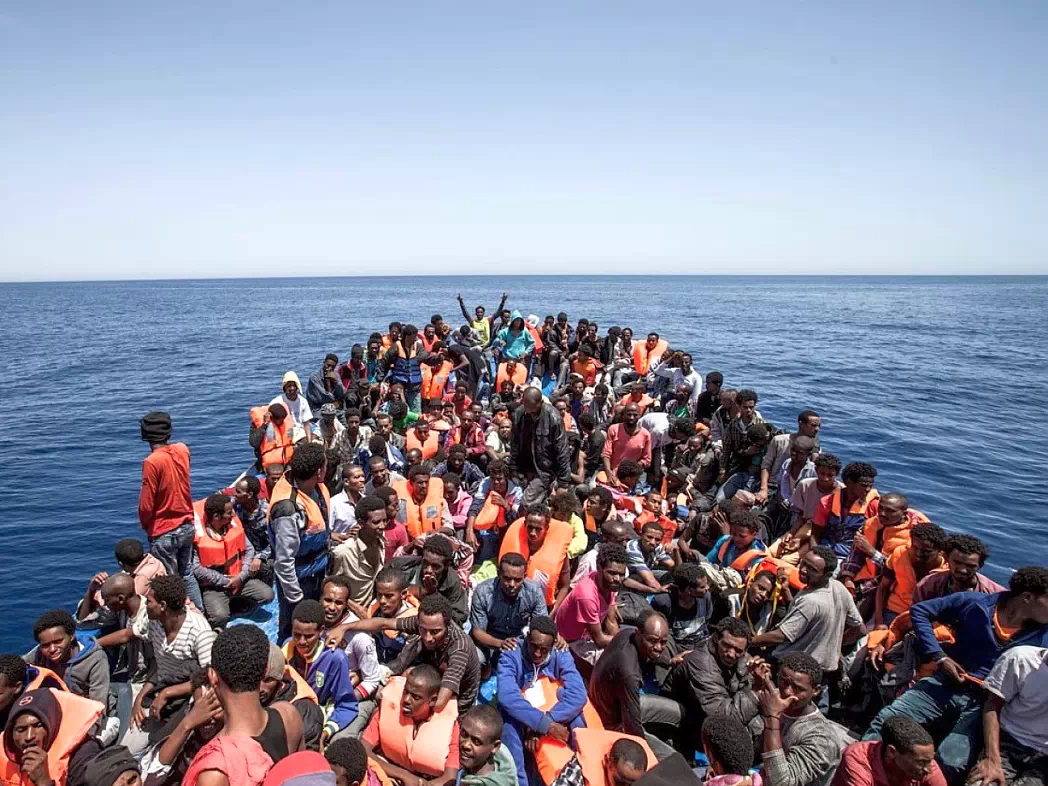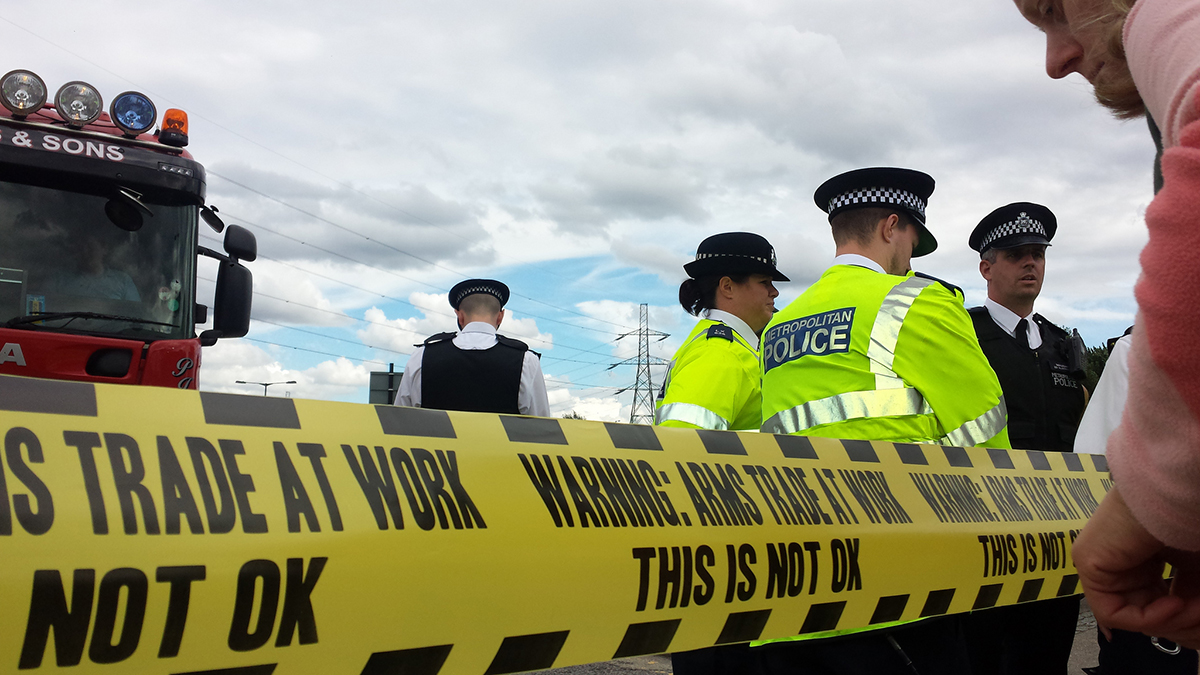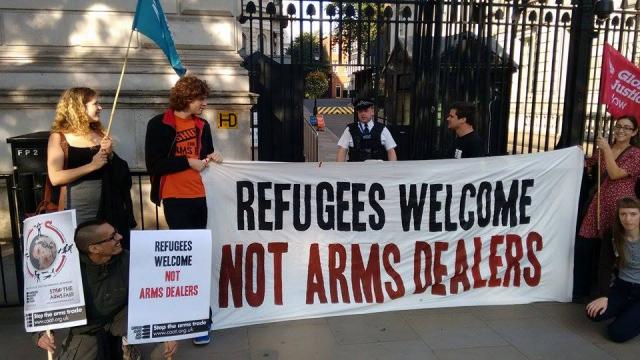
Last week's DSEi arms fair in London happened at a particularly interesting moment, as Europe's refugee crisis reaches new proportions and countries respond to a disaster created in large part by the continent's thriving war machine.
The Mediterranean has now become one of the world’s deadliest borders. People are drowning in the thousands attempting to escape Syria and other conflicts in the Middle East, Asia and Africa. A photo showing the drowned body of three-year-old Alan Kurdi created a full-scale shift in public attitudes towards refugees across Europe. Three months ago, Amnesty international denounced European countries for ignoring the humanitarian crisis on their borders – considered the most severe displacement of peoples since WWII.
In Syria alone, over 4 million have fled. Neighboring countries themselves have become home to 95% of these refugees; in Lebanon, one in five people are now displaced Syrians. The fact that the majority of displaced people stay in nearby lands contradicts the right-wing European narrative that the continent bears the highest burden of the global crisis.
But in Britain, like many countries, right-wing elements are consistently attacking and scapegoating refugees and other minorities, and racism is escalating. One venomous example was published in April by Rupert Murdoch’s Sun Newspaper. Its headline read: “Rescue boats? I’d use gunships to stop illegal migrants." Earlier this year, U.K. Prime Minister David Cameron also faced criticism for his use of dehumanizing language referring to the flood of migrants seeking safety on Britain's shores.
But the washed up body of Alan Kurdi promoted a U-turn in the corporate media coverage, where the tone softened suddenly from hate toward sympathy. Nonetheless, racist undertones continue, as demonstrated again in the Sun Newspaper – which has the U.K.'s highest circulation – whose recent editorial asserted Britain should accept more refugees, but still watch out for fakers. (According to the UN, there is nothing "fake" about the refugees plight, the majority of whom are escaping war, persecution and atrocities.)
War-Mongering Press, Commitments That Aren't Enough
Recently, the sympathetic tone from the right-wing press changed again, with The Sun once more at the fore, headlining its campaign with “Bomb Syria for Alan.” The fact that five billionaires own over 70% of the U.K. corporate press may help explain the current war-mongering: their interests, after all, overlap those of the military industrial complex, big banks and big oil. For example, Murdoch has oil investments in Israeli-controlled Golan Heights in Syria.
The photo of Alan Kurdi’s dead body, who drowned with his mother, brother and 10 other Syrian refugees invoked a monumental outpouring of public solidarity in the U.K., and worldwide. Hundreds across Britain offered places in their homes to refugees. Thousands petitioned the U.K. government for more humanitarian action, and more than 100,000 took to the streets with the message Refugees Welcome. Under pressure to respond, Cameron announced that the U.K. would accept 20,000 more Syrian refugees in the next five years.
The promise represents an increase from previous commitments, but has been widely condemned for offering still too little. By comparison, Germany says it will offer safe haven to 800,000 refugees this year.
U.K. policy has also been criticized for threatening to deport orphaned children on their 18 birthday. Yet a far worse criticism can be leveled against the British state: that is has itself, through promotion of the war machine, driven the refugee crisis. This is a point showcased at the U.K. state-sponsored DSEi arms fair.
How the War Machine Produced Refugees
While Syria’s humanitarian disaster created the most refugees of any country, the British state has been actively profiting from the Assad regime’s brutal suppression. Britain has sold Assad weapons, invited Syria's arms dealer to DSEi 2013, and even sold the regime nerve gas components 10 months after the country's civil war began.
Drone warfare is another central driver of the refugee crisis, and Britain plays a core role pushing that weapon technology. A study of un-official CIA drone warfare in Pakistan explains how drones terrorize the population, frequently killing civilians. Drones were featured at this year's DSEi with an unmanned zone, drone simulators and flybys outside. The countries from which the largest numbers of refugees originate face U.S. and U.K.-led drone warfare, includingSyria, Afghanistan and Somalia. In another example of how U.K. drones are responsible for displacing people, Saudi Arabia used [British-built drones to attack a Yemeni refugee camp](Giles Fraserhttp://www.theguardian.com/commentisfree/2015/apr/01/britain-saudi-attac...).
After Cameron told Parliament that the U.K. would accept 20,000 refugees, he justified using a drone attack to kill, without trial, Reyaad Khan, a British citizen in Syria with links to ISIS. The U.K. state not only promotes drone sales through DSEi, but Cameron also wants them to be on the top of the U.K.’s own shopping list.
Last year I reported from the Calais refugee camp. Now, with the refugee crisis hitting new levels, I've been thinking back to those people I met in Calais. They were people seeking sanctuary from Syria, Afghanistan, Sudan, Iraq and other conflicts where the U.K. government and multinational corporations have been directly involved. The horrific destruction of people's lives in those places is a direct result of a military war machine pushed at DSEi. Refugees are victims of, among other things, the global arms trade – a deadly business that benefits the 1%.
3 WAYS TO SHOW YOUR SUPPORT
- Log in to post comments

